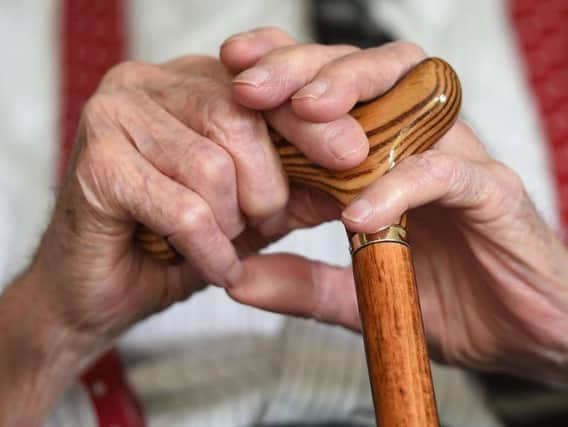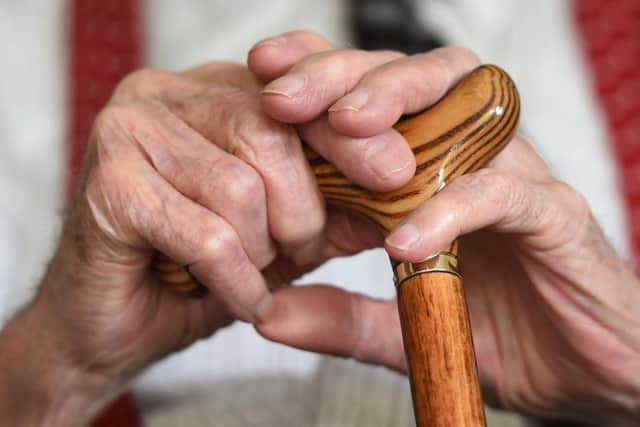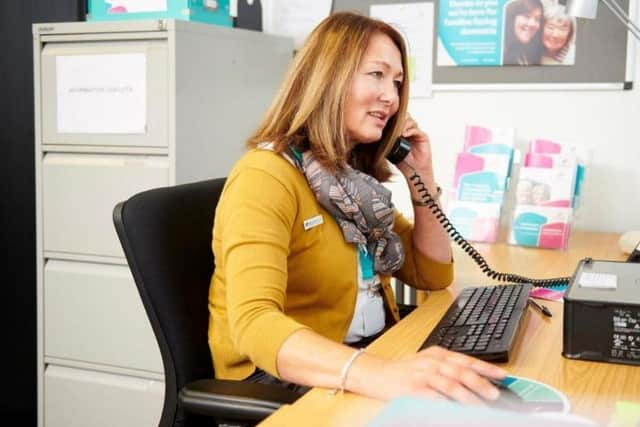This is how to discover if your loved one has got dementia


Admiral Nurses are specialist dementia nurses who work across a variety of settings, including out in the community, care homes, hospitals and hospices as well as on Dementia UK’s
Admiral Nurse Dementia Helpline – the only dementia specialist led helpline in the country. The Helpline is available to anyone who has any questions around dementia and it is available via phone and email.


Advertisement
Hide AdAdvertisement
Hide AdPat said: “It is important to know that some early symptoms of dementia can be similar to many other conditions, therefore it is recommended to suggest that the person affected who has new symptoms visits the doctor for a consultation”.
“Memory loss alone isn’t an indication of dementia, there are other conditions that need to be ruled out, for example some blood conditions and common infections, for example, can mimic symptoms.”
GPs will typically arrange blood and urine tests and may ask the person to take simple cognitive tests. Pat said: “Cognitive tests can be affected by things like anxiety for example, therefore it is important to reassure the person throughout the process and let them know what to expect beforehand. The process of getting an accurate diagnosis will help families to plan ahead and to access the right services for their needs.
“Relatives can also help by providing extra information to the GP where the person with suspected dementia may genuinely not be aware of things other people are noticing or where they may be in denial of a problem.”


Advertisement
Hide AdAdvertisement
Hide AdResearch by Alzheimer’s Research UK has shown that dementia is the most feared condition in over 55s in the UK, understandably that fear can sometimes be a barrier to people seeking a diagnosis.
Pat said: “We often suggest to family members that there’s no harm in them contacting the GP themselves if it’s not possible to do it with the person. Or, it can be useful to write a letter to the GP highlighting changes you’ve noticed and how this is affecting them around the home.
“For some people this might be something like a change in habit: like buying a lot more Lottery tickets than normal, maybe the person is calling a lot more during the day, or you may notice that there’s food in the fridge that’s out of date.
“The extra information can be like pieces of the jigsaw puzzle that can help a GP to see the full picture when they see the person, and it also helps the family member to avoid embarrassing the person by talking about them to the GP in front of them.”
Advertisement
Hide AdAdvertisement
Hide AdIf the GP feels that the information from the assessments they have conducted warrants further investigation then they will refer the person to a specialist team for more comprehensive tests.
Usually in each area there is a dedicated Memory Clinic, where further tests may involve brain scans for example, to determine which type of dementia a person has. There are over 200 subtypes of dementia.
Pat said: “A diagnosis is not made quickly, it can be complex because it’s so important to get it right when you are ascertaining whether the person potentially has a life-limiting condition like dementia.
“After diagnosis, follow-up support can be patchy, partly due to overstretched Health and Social Care services but also sometimes because of a lack of joined-up working amongst service providers. This is why Dementia UK has committed to expanding the number of Admiral Nurses working across various care settings, including on the Admiral Nurse Dementia Helpline.
Advertisement
Hide AdAdvertisement
Hide Ad“Admiral Nurses can help families to navigate their way around the system, because help can be confusing and patchy.
“We want every family to have access to an Admiral Nurse and ensure that if you don’t have one in your area, or your local hospital, you can call the Admiral Nurse Dementia Helpline.”
Pat also said that some individuals may not be used to asking for help or may not be aware of what help they’re eligible for. Data shows that for one third of people with dementia, their friends and family are providing all of the help, and in around 12 per cent of cases, people are paying entirely for their own care.
To help signpost people in the right direction, Dementia UK provide a range of booklets and information online.
Advertisement
Hide AdAdvertisement
Hide AdPat added: “It’s important to be well-informed and to enable people to have more choice about what happens with their own health.
“Diagnosis can be helpful, it can not only help a person plan ahead, they can also arrange to get their affairs in order, which can help reduce stress.
“The key thing is that people do not need to feel alone, there is help available.”
• If you need advice on living with dementia, contact Dementia UK’s Admiral Nurse Dementia Helpline on 0800 888 6678 or email [email protected]. The Helpline is staffed by experienced Admiral Nurses, who give vital support by telephone or email.
